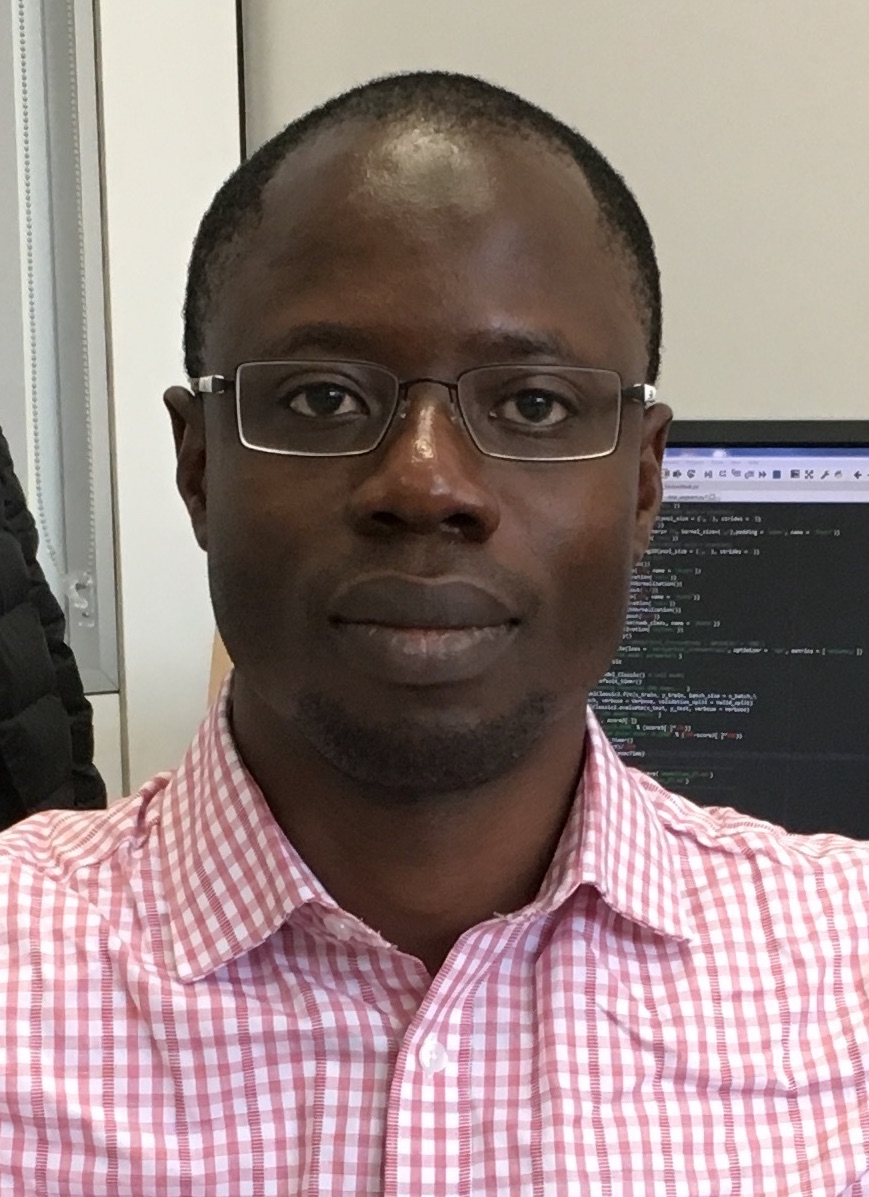Assistant Professor
GIS, Remote Sensing, Geospatial modelling, spatial pattern comparison, convolutional neural networks for landcover change detection, deep learning applications in Snow parameter monitoring
School of the Environment
University of Windsor
401 Sunset Avenue
Windsor, Ontario, N9B 3P4, Canada
(519) 253-3000 x2487
Room 110 Memorial Hall
kmalik@uwindsor.ca

Education
- Ph.D. Wilfred Laurier University, Canada, 2021
- M.Sc. King Fahd University of Petroleum and Minerals, Saudi Arabia, 2015
- B.Sc. University of Cape Coast, Ghana, 2006
Research Interests
My research investigates the potential of computer vision and machine learning methods to compare patterns inherent in Earth observation measurements such as data acquired through remote sensing technology. Given the burgeoning rate of natural and anthropogenic disturbances, the development of tools for monitoring landuse/landcover change has become more imperative than ever. Spatial pattern comparison is a long-standing problem in geography/GIScience, yet the tools required to compare patterns are fractured across many disciplines. Landscape similarity analysis and terrestrial change detection are the loci around which I tackle the problem of pattern comparison. Landscape similarity analysis aims to illuminate the mechanisms underlying spatial pattern variability over locations by elucidating the correlation between patterns generated by different spatial processes whereas change detection focuses on characterizing and quantifying change in patterns over time. Nonetheless, distinguishing significant change from spurious change remains the fundamental challenge of traditional spatial pattern comparison tools/methods. I believe that tools developed in the computer vision and machine learning disciplines hold the potential to extract discriminative patterns for change detection and similarity analysis. I also hold a firm view that integrating traditional pattern comparison tools developed in geography/GIScience with computer vision and artificial intelligence methods such as deep learning can propel the frontiers of pattern comparison research while yielding robust results.
Previous Positions
- Assistant Professor, Department of Geography and Planning, University of Toronto, (2021-2023)
- Researcher, Research Institute, King Fahd University of Petroleum and Minerals (2015-2017)
